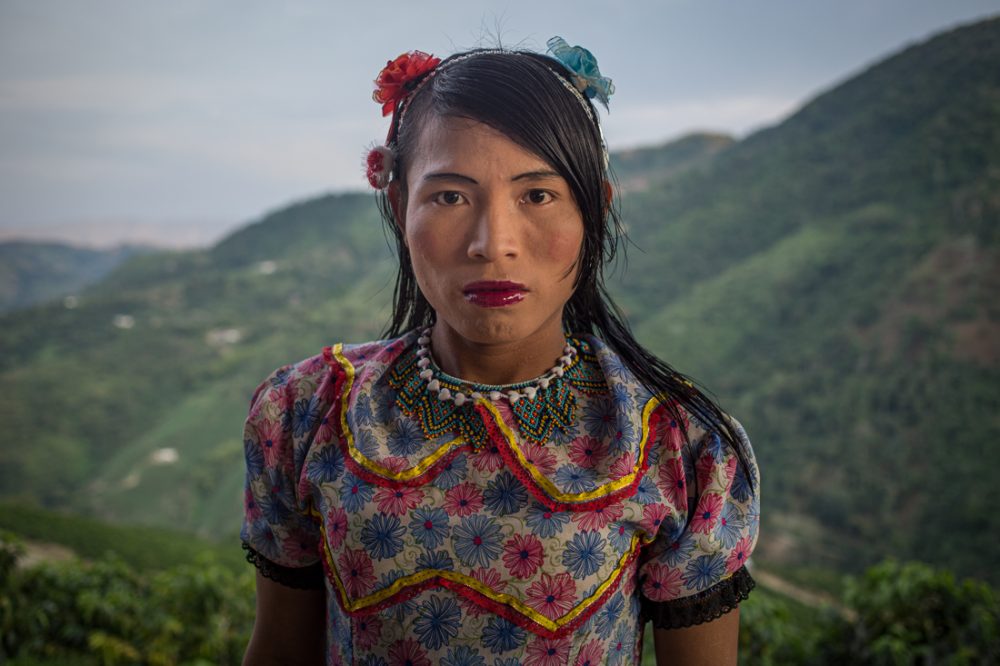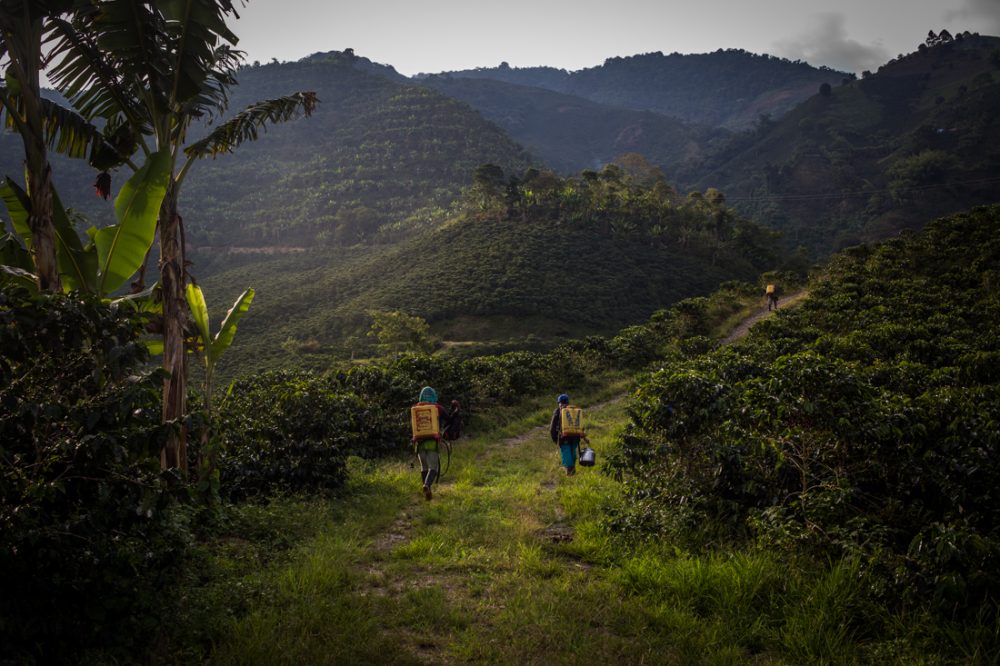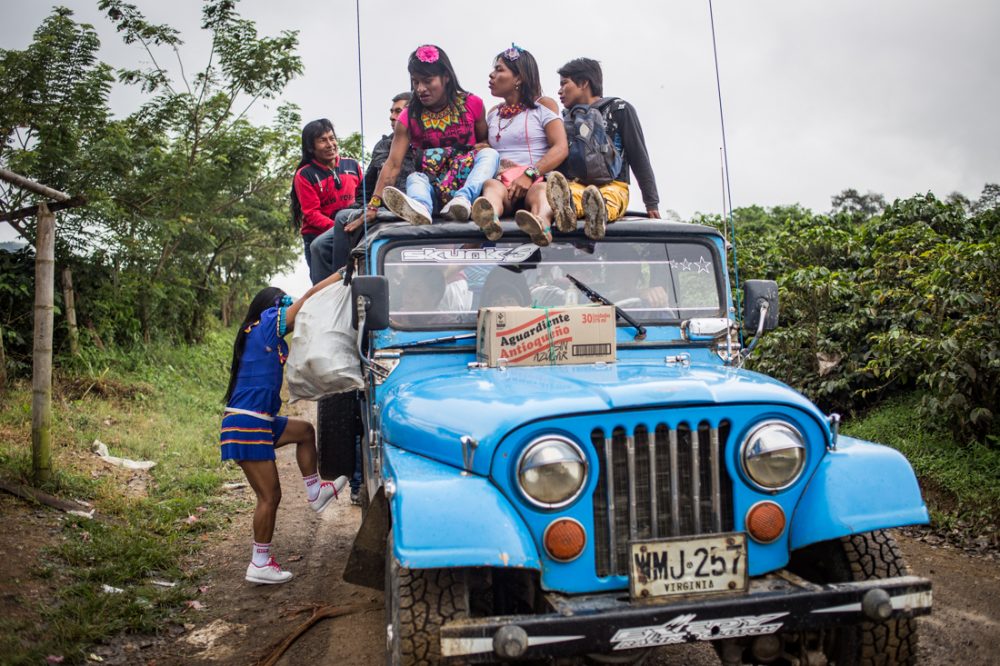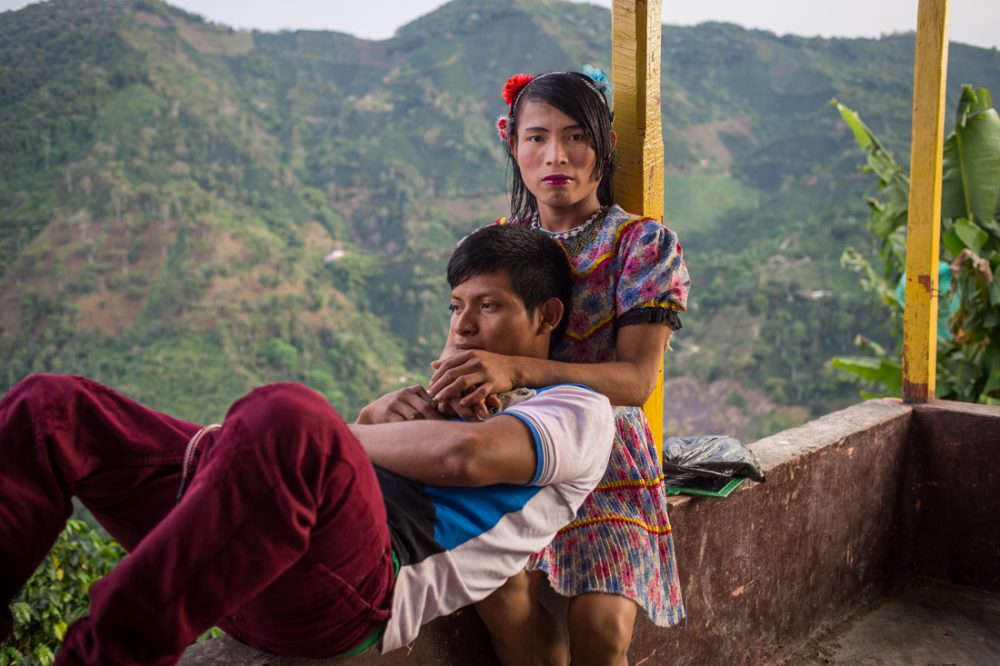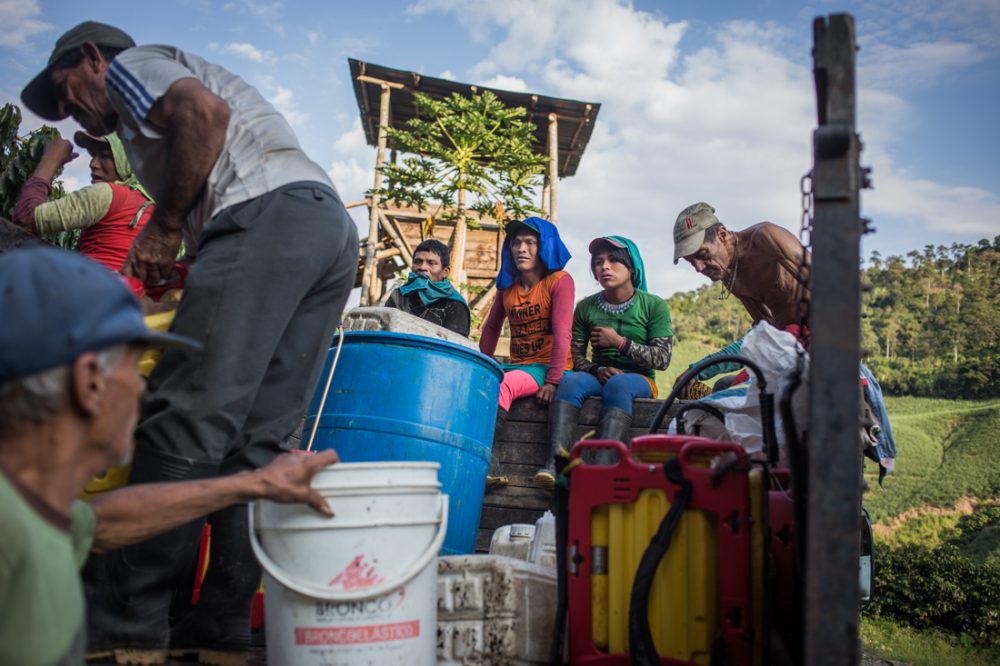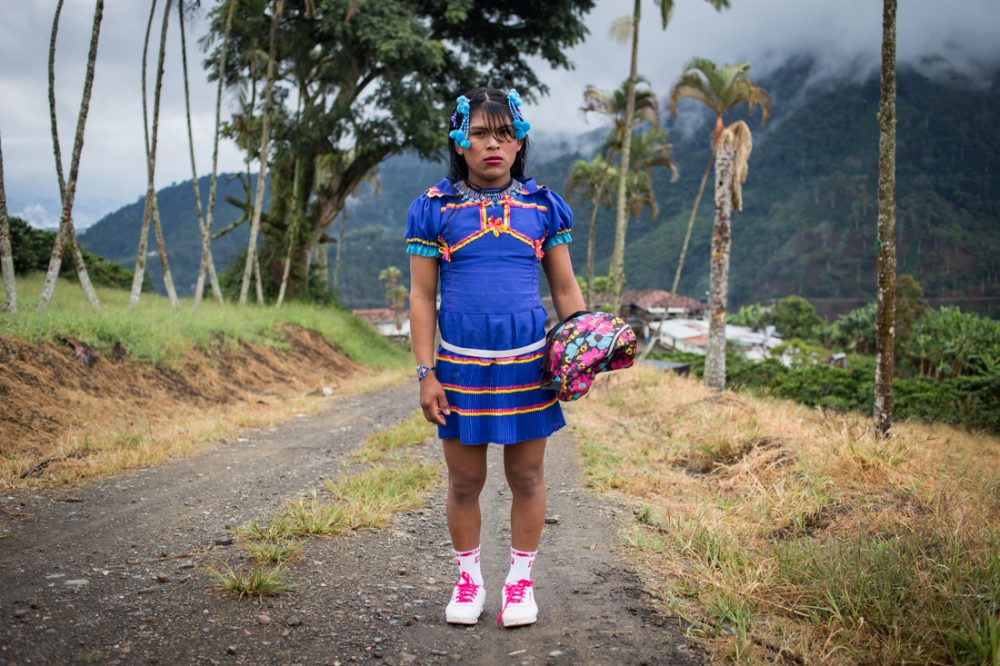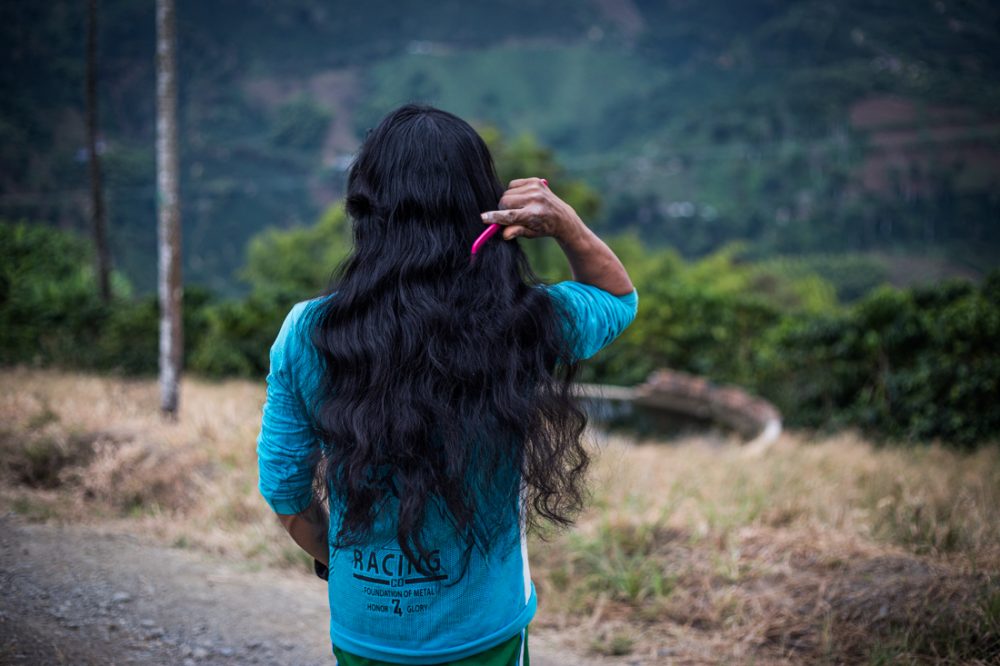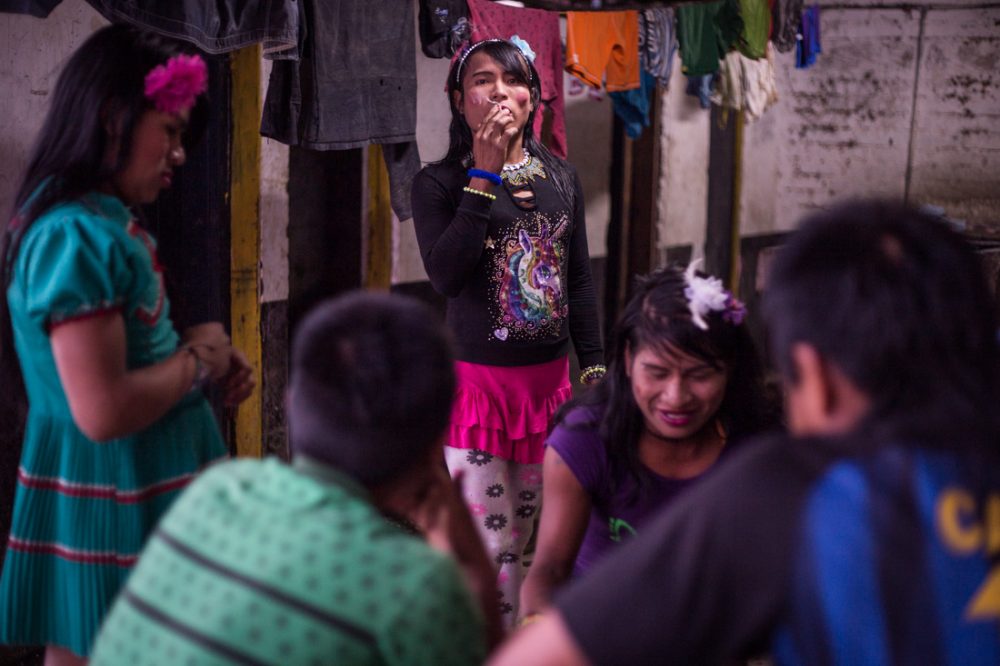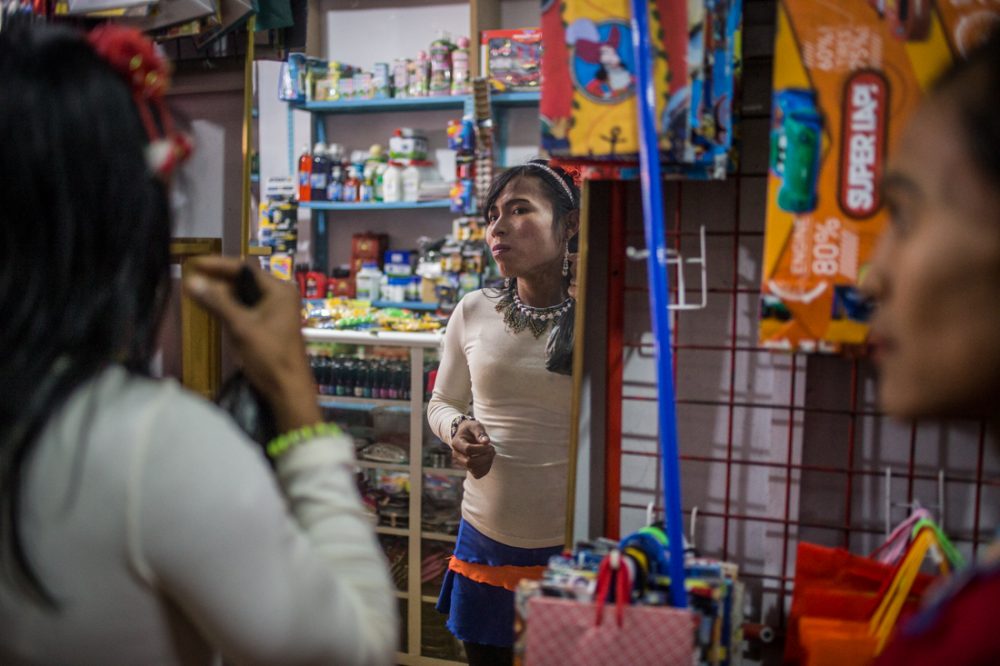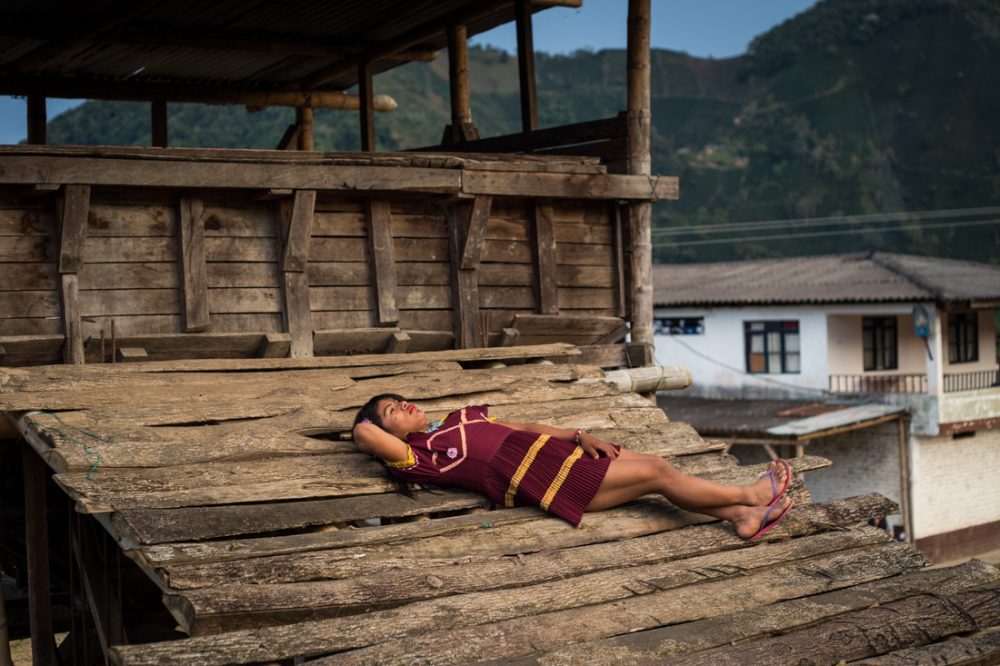Los Primos – Indigenous Transgender Women in Colombia
Lena Mucha
2020 — Colombia
About this series
In the mountains of Colombia’s coffee region, indigenous transgender women, dressed in colorful attire, work the lush green farms. Back home in their communities, they are not accepted. Many are punished or forced to leave their villages. The Emberá, the ethnic group they belong to, are convinced they contracted a contagious disease from the white man. On the coffee farms, they are allowed to be themselves. They work hard and every evening after returning from the fields, they don traditional dresses and jewelry as an expression of their indigenous identity. “I won´t go back to my community. Here I can finally be who I am and live my identity”, says Angelica one of the girls or “primos” (cousins), as they are called in the village.
Photographer: Lena Mucha
Nationality: German
Based in: Berlin – Munich, Germany
Website: www.lenamucha.com
Instagram: @lena_mucha
Lena Mucha is a German photographer based between Berlin and Munich. She works frequently with The New York Times and other (inter)national media in Germany, Europe, and across the world.
After graduating with a Master of Social Anthropology and Political Science from the University of Cologne in 2011, she started photography whilst working in Colombia with different NGOs. Her work focuses on stories related to human rights, gender aspects, and social changes within societies and ethnic groups that are mainly under-reported.
She participated in the HEFAT – Hostile Environment and Emergency First Aid Training in Nairobi and the RISC Training in Medellin, Colombia. With support from the IWMF, she she worked on a story about the health impacts of cobalt mining in the DRC. Other stories brought her to Haiti where she covered the aftermath of the earthquake in Haiti or a reportage about teenage rebel fighters in Colombia. In Europe, she has worked amongst others on stories related to the far-right movement and was commissioned by the UNDP to photograph a project highlighting African migration all over the continent.
Amongst her clients are National Geographic, GEO, Washington Post, CNN, Wall Street Journal, Der Spiegel, ZEIT, Doctors without Borders, the ICRC – International Committee of the Red Cross, Le Monde, Al Jazeera, the Open Society Foundation, and British Journal of Photography amongst others.


